
Filter News
Area of Research
- (-) Clean Energy (56)
- (-) National Security (45)
- Advanced Manufacturing (3)
- Biological Systems (1)
- Biology and Environment (91)
- Biology and Soft Matter (1)
- Climate and Environmental Systems (2)
- Computational Biology (1)
- Computational Engineering (1)
- Computer Science (4)
- Fuel Cycle Science and Technology (1)
- Fusion and Fission (4)
- Isotopes (7)
- Materials (54)
- Materials for Computing (10)
- Neutron Science (82)
- Nuclear Science and Technology (4)
- Quantum information Science (2)
- Supercomputing (100)
News Type
News Topics
- (-) Big Data (5)
- (-) Biomedical (6)
- (-) Clean Water (4)
- (-) Computer Science (31)
- (-) Environment (35)
- (-) National Security (35)
- (-) Neutron Science (13)
- (-) Summit (5)
- 3-D Printing/Advanced Manufacturing (52)
- Advanced Reactors (6)
- Artificial Intelligence (17)
- Bioenergy (26)
- Biology (12)
- Biotechnology (4)
- Buildings (19)
- Chemical Sciences (13)
- Climate Change (18)
- Composites (7)
- Coronavirus (10)
- Critical Materials (4)
- Cybersecurity (23)
- Decarbonization (26)
- Energy Storage (46)
- Exascale Computing (2)
- Fossil Energy (2)
- Frontier (1)
- Fusion (2)
- Grid (25)
- High-Performance Computing (8)
- Isotopes (1)
- Machine Learning (15)
- Materials (23)
- Materials Science (18)
- Mathematics (1)
- Mercury (2)
- Microelectronics (1)
- Microscopy (6)
- Molten Salt (1)
- Nanotechnology (8)
- Net Zero (2)
- Nuclear Energy (9)
- Partnerships (16)
- Physics (2)
- Polymers (6)
- Quantum Science (3)
- Renewable Energy (1)
- Security (14)
- Simulation (2)
- Space Exploration (1)
- Sustainable Energy (38)
- Transformational Challenge Reactor (3)
- Transportation (35)
Media Contacts
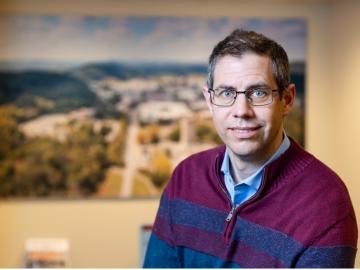
What’s getting Jim Szybist fired up these days? It’s the opportunity to apply his years of alternative fuel combustion and thermodynamics research to the challenge of cleaning up the hard-to-decarbonize, heavy-duty mobility sector — from airplanes to locomotives to ships and massive farm combines.
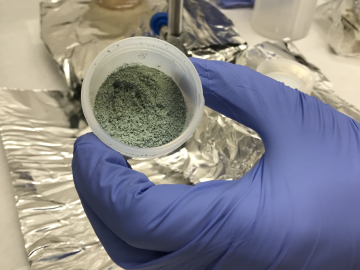
ORNL researchers used the nation’s fastest supercomputer to map the molecular vibrations of an important but little-studied uranium compound produced during the nuclear fuel cycle for results that could lead to a cleaner, safer world.
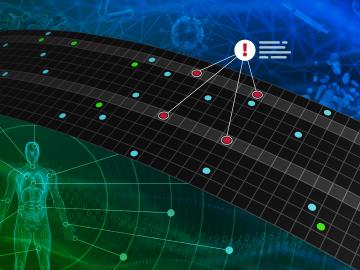
A team of researchers has developed a novel, machine learning–based technique to explore and identify relationships among medical concepts using electronic health record data across multiple healthcare providers.

Tackling the climate crisis and achieving an equitable clean energy future are among the biggest challenges of our time.
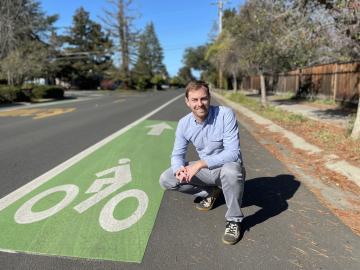
David McCollum is using his interdisciplinary expertise, international networks and boundless enthusiasm to lead Oak Ridge National Laboratory’s contributions to the Net Zero World initiative.
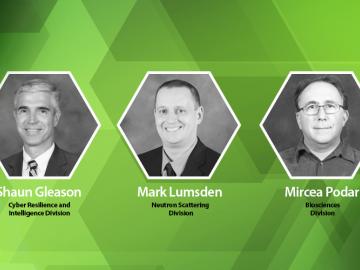
Three ORNL scientists have been elected fellows of the American Association for the Advancement of Science, or AAAS, the world’s largest general scientific society and publisher of the Science family of journals.
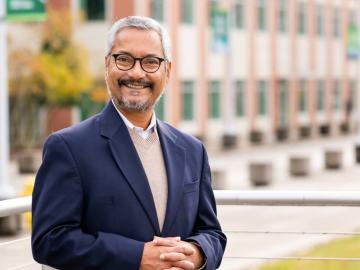
ORNL’s Budhendra “Budhu” Bhaduri has been elected a fellow of the American Association of Geographers. The honor recognizes Bhaduri as “a world leader in innovation, development and application of research in human dynamics, geographic data science, remote sensing and scalable geocomputation.”
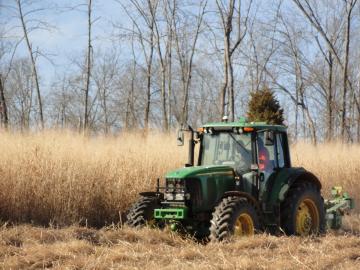
Energy and sustainability experts from ORNL, industry, universities and the federal government recently identified key focus areas to meet the challenge of successfully decarbonizing the agriculture sector
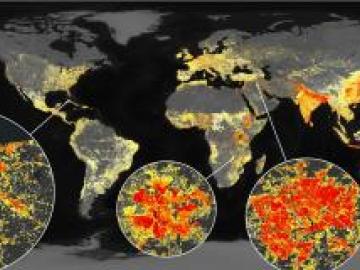
Using novel data sets and computing systems, researchers at ORNL are simulating how climate change affects the safety and security of the country.

A team of collaborators from ORNL, Google Inc., Snowflake Inc. and Ververica GmbH has tested a computing concept that could help speed up real-time processing of data that stream on mobile and other electronic devices.


